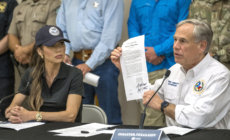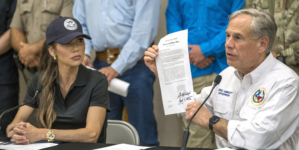-
Donald Trump’s Approval Rating With College Students Gets a Boost—Poll - 24 mins ago
-
Family sues over San Diego police officer found dead outside jail - 31 mins ago
-
Should New York City Ditch Its Party Primaries in Favor of Open Races? - 43 mins ago
-
Greg Abbott Rebukes Question About ‘Blame’ As 161 Still Missing After Texas Flood - 59 mins ago
-
Three Californians, family of former Giants pitcher, missing in Texas flash floods - about 1 hour ago
-
‘Superman’ Review: It’s a Bird, It’s a Plane, It’s a Reboot! - about 1 hour ago
-
Yankees Receive Harsh Criticism For Consistent DJ LeMahieu Decision - 2 hours ago
-
Dorm staffer threatened to bite off deaf student’s finger if he revealed sexual abuse, lawsuit claims - 2 hours ago
-
AEW’s MJF Praises Unpopular WWE Business Practice - 2 hours ago
-
Supreme Court Clears Way for Mass Firings at Federal Agencies - 2 hours ago
Supreme Court rules for San Francisco, limits EPA’s power on stormwater discharges
WASHINGTON — The Supreme Court’s conservative majority ruled for San Francisco on Tuesday, limiting the power of environmental regulators to prevent ocean discharges of polluted storm water.
At issue was a regulatory dispute over the permitting standards used by the Environmental Protection Agency.
Storm runoff from coastal cities can pollute bays and the ocean, but city managers argued they should not be held responsible for ocean pollution unless it came from their wastewater treatment plants.
Justice Samuel A. Alito Jr. agreed with San Francisco city and county officials and said an “end result” permit is unfair.
Even a city that “punctiliously follows every specific requirement in its permit may nevertheless face crushing penalties if the quality of the water in its receiving waters falls below the applicable standards,” he said in San Francisco vs. EPA.
He said the EPA retains ample authority to prevent water pollution.
“If the EPA does its work, our holding should have no adverse effect on water quality,” he wrote.
Justice Amy Coney Barrett dissented, noting that the law authorizes the EPA to enforce “any limitation” need to protect clean water.
The court’s three liberals — Justices Sonia Sotomayor, Elena Kagan and Ketanji Brown Jackson — agreed with her dissent.
Source link















